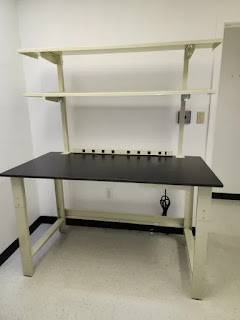Choosing the Right Science Lab Furniture: A Comprehensive Guide
Setting up a science laboratory is not just about buying equipment and instruments; it's also about selecting the right furniture. The furniture you choose for your lab can significantly impact the efficiency, safety, and functionality of the workspace. From lab benches to storage cabinets, each piece of furniture plays a crucial role in creating a conducive environment for research and experimentation. In this comprehensive guide, we'll explore the key factors to consider when choosing science lab furniture.
1. Purpose and Functionality
Before purchasing any lab furniture, it's essential to understand the specific needs of your laboratory. Consider the type of experiments and research activities that will be conducted in the lab. Will you need specialized workstations for chemical experiments, biology research, or physics experiments? Understanding the purpose of the lab will help you determine the functionality and design requirements of the furniture.
2. Safety and Compliance
Safety should be a top priority when selecting lab furniture. Ensure that the furniture you choose meets industry standards and regulatory requirements for safety and compliance. Look for features such as chemical-resistant surfaces, fire-retardant materials, and ergonomic designs that promote proper posture and minimize the risk of accidents or injuries.
3. Durability and Quality
Lab furniture is a long-term investment, so it's essential to choose durable and high-quality pieces that can withstand the rigors of daily use. Opt for furniture made from sturdy materials such as stainless steel, phenolic resin, or epoxy-coated steel, which are resistant to corrosion, chemicals, and impact. Investing in durable furniture will save you money in the long run by reducing the need for frequent replacements or repairs.
4. Flexibility and Adaptability
As research needs evolve, your lab furniture should be able to adapt to changing requirements. Choose modular or adjustable furniture that can be easily reconfigured or expanded to accommodate new equipment or workflows. This flexibility will allow you to maximize the use of space and optimize productivity in the lab.
5. Ergonomics and Comfort
Comfortable and ergonomic furniture is essential for the health and well-being of lab personnel. Look for features such as adjustable height workstations, supportive chairs with lumbar support, and footrests to minimize strain and fatigue during long hours of work. Ergonomic furniture not only enhances productivity but also reduces the risk of musculoskeletal disorders.
6. Storage and Organization
Effective storage solutions are crucial for maintaining a clean and organized lab environment. Choose furniture with ample storage space, including cabinets, drawers, and shelves, to keep equipment, supplies, and samples neatly organized and easily accessible. Consider the specific storage needs of your lab, such as temperature-controlled storage for sensitive materials or secure storage for hazardous chemicals.
7. Budget Considerations
While quality and functionality are important, it's also essential to consider your budget constraints when selecting lab furniture. Determine a budget range based on your funding limitations and prioritize furniture that offers the best value for money. Compare prices from different suppliers and consider factors such as warranties, installation costs, and ongoing maintenance expenses.
In conclusion, choosing the right science lab furniture requires careful consideration of factors such as purpose, safety, durability, flexibility, ergonomics, storage, and budget. By taking the time to evaluate your needs and research available options, you can create a functional and efficient lab environment that supports scientific discovery and innovation.





Comments
Post a Comment